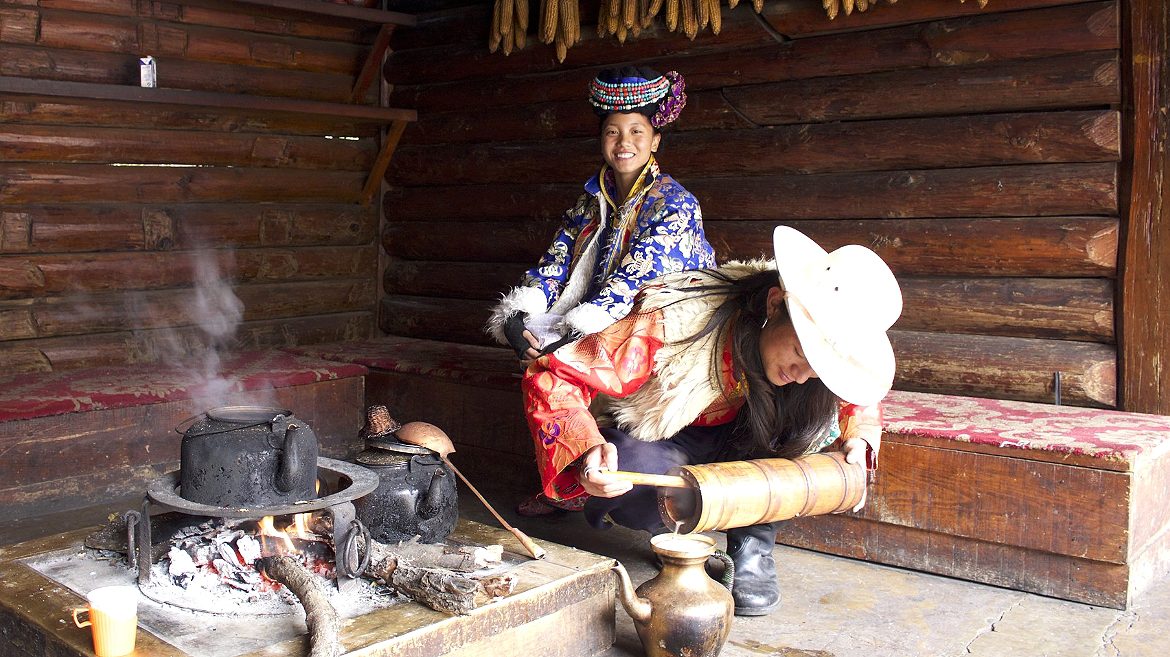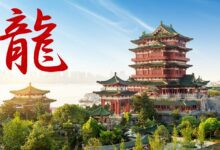Moso religion: a symbiosis of ancient Daba traditions and Buddhist philosophy
Rreligion of the Moso or Mosuo people (Mosuo - Women's Rule Society) in China represents a unique symbiosis of two spiritual systems. On the one hand, this Daba, an animistic religion of ancestor worship closely intertwined with Naxi religion Dongba ethnic group in Lijiang that has been ingrained in their culture for thousands of years. On the other side, Tibetan Buddhism, penetrated into the life of the Moso relatively recently, but occupied a dominant position in their daily spiritual life.
Dhaba and Buddhism are two sides of spiritual life
The Daba religion permeates every aspect of Moso life, as it based on veneration of ancestors, which are believed to have powerful powers and still influence the fate of the living. Nature spirits also play an important role in this religion; they are revered and asked for help in any everyday affairs.
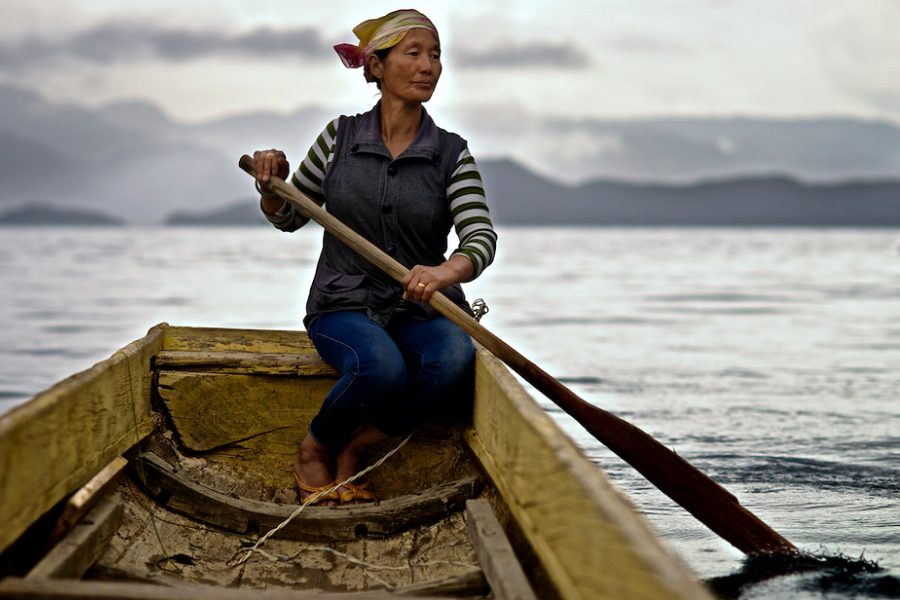
On the other hand, Tibetan Buddhism brought new rituals, philosophy and spiritual practices. Monasteries became centers of religious life, and lamas became spiritual leaders. Buddhism teaches Mosuo compassion, patience and the pursuit of enlightenment.
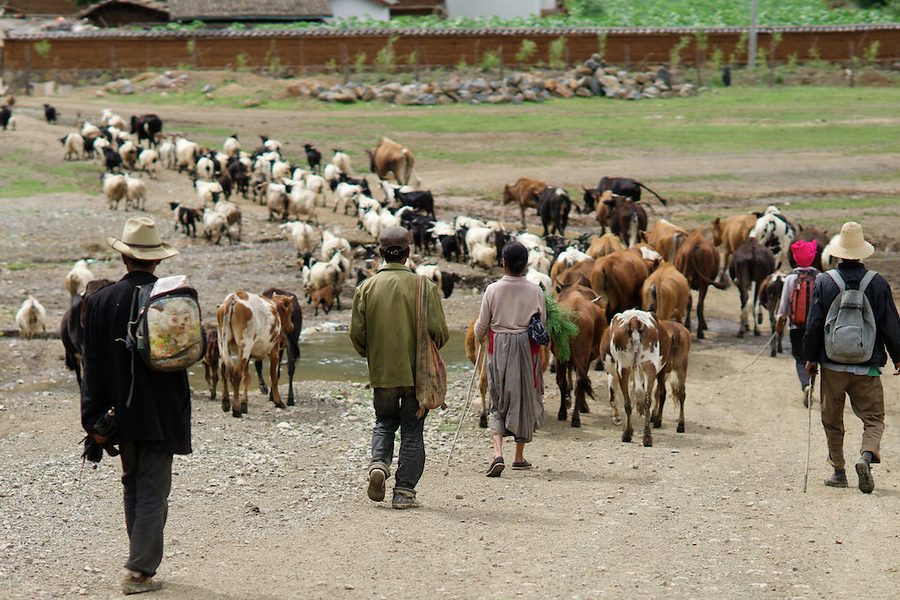
Strangely enough, despite external differences, Daba and Buddhism peacefully coexist in the life of Moso. Ancient traditions are not supplanted by Buddhism, but complement each other, creating a unique spiritual system.
Daba maintains the Mosuo's connection to their origins and ancestors, while Buddhism provides spiritual development to the community and gives people solace.
This symbiosis allows Moso to harmoniously interact with the world around him and find answers to eternal questions.
Buddhism in the heart and life of the Moso people
When you visit the Moso community, you will inevitably be immersed in the atmosphere of Tibetan Buddhism. Prayer flags, like patches of heaven, decorate houses and trees.
Women dressed in traditional clothes leisurely walk around prayer wheels, immersed in the rhythm of mantras, and Tibetan monks, dressed in purple robes, walk the streets or live in solitude in monasteries, being the guardians of spiritual knowledge.
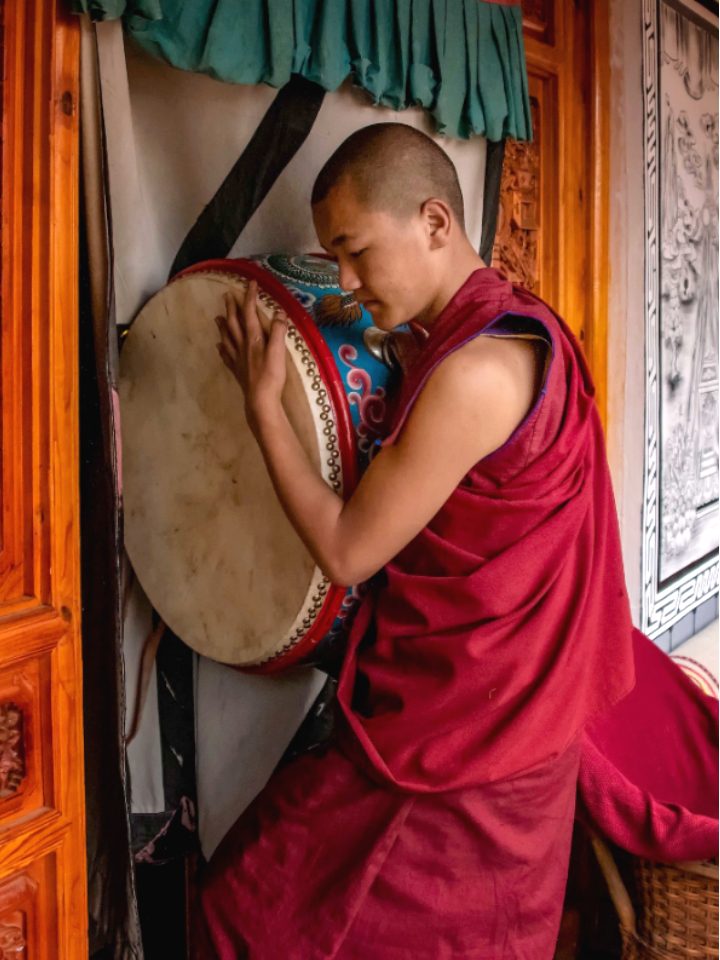
One of the main symbols of faith is the “living Buddha” - the reincarnation of one of the great Tibetan spiritual leaders, and he, like a connecting link, connects the community with centuries-old tradition.
Buddhism here is not just a religion, but the very soul of Moso. It permeates all spheres of life, from everyday rituals to the most important holidays.
Many Mosuo families send their sons to study in monasteries, where they learn the basics of Buddhist philosophy and find a spiritual path - this has now become a folk tradition. In recent years, the number of Mosuo monks has increased significantly, indicating a renewed interest in religion.
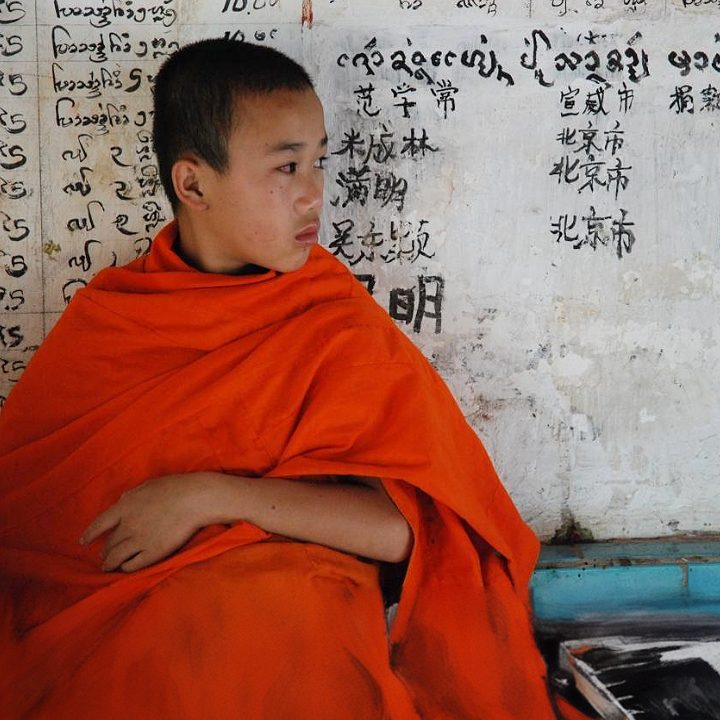
In many Mosuo homes, you are sure to find a statue of a Buddhist deity above the fireplace where food is cooked. It is a tribute and a symbol of spiritual connection. A portion of the prepared food is traditionally offered to the deity as a sign of gratitude and blessing.
Today, Tibetan Buddhist holidays and festivals are important events that unite the entire Mosuo community. People of all ages come together to chant mantras, make offerings and dance ritual dances, expressing their sincere faith and unity.
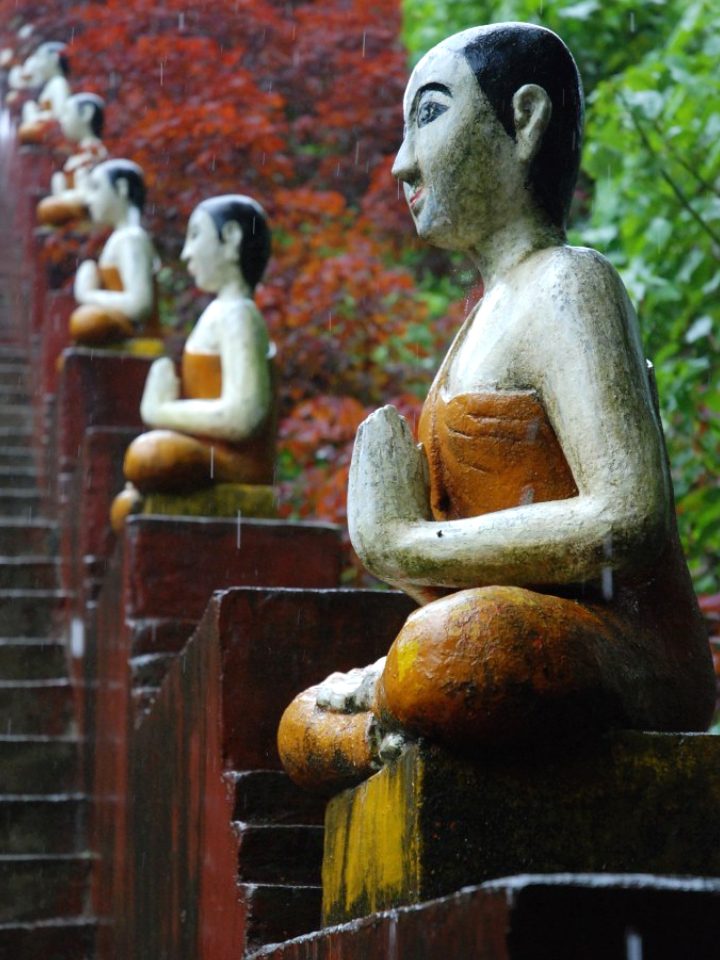
Thus, Buddhism for Moso is not just a set of sacred and not entirely clear dogmas, but a way of life based on spirituality, respect for traditions and connection with the outside world.
Daba: the shadow of ancestors in the modern world
In the daily life of the Mosuo, the influence of Daba, their ancient religion, is not so pronounced. A comparison with the practice of Christianity in Western countries is obvious: people go to church (or, in this case, to a “daba”, shaman) on special occasions - weddings, funerals, baptisms, Christmas and Easter.
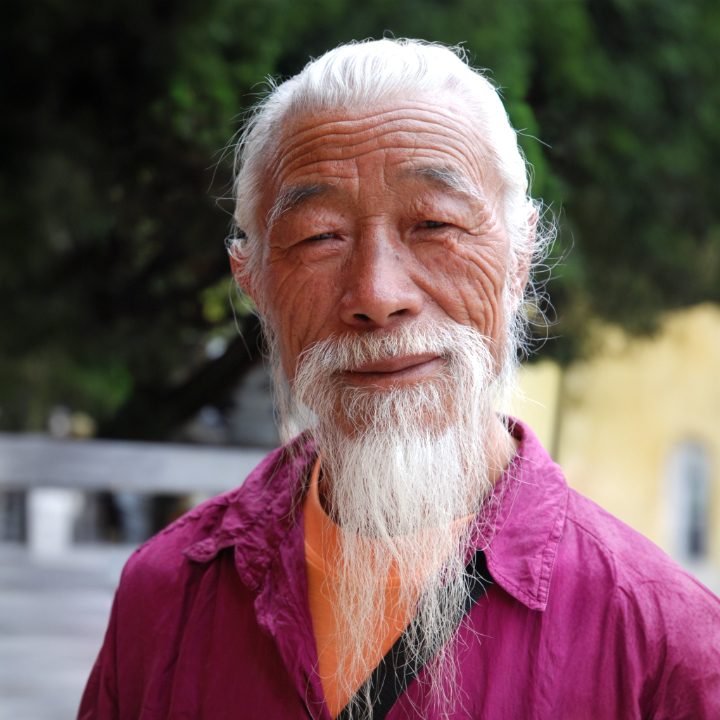
“Daba” is called for traditional ceremonies: naming a child, coming of age, funerals, as well as for holidays, such as the Spring Festival, and is also called upon in case of illness.
Both religions - Daba and Tibetan Buddhism - are integral parts of the culture of the Mosuo people. But it is clear that Buddhism plays a much more significant role in their daily lives and serves as a spiritual compass, guiding people's thoughts and actions from day to day.
Memory storage on the verge of extinction
In turn, Daba is not just some ancient religion for the Moso. This repository of their culture and history, passed down orally from generation to generation, and the priests of Daba are the guardians of this priceless memory, but unfortunately their number is decreasing.
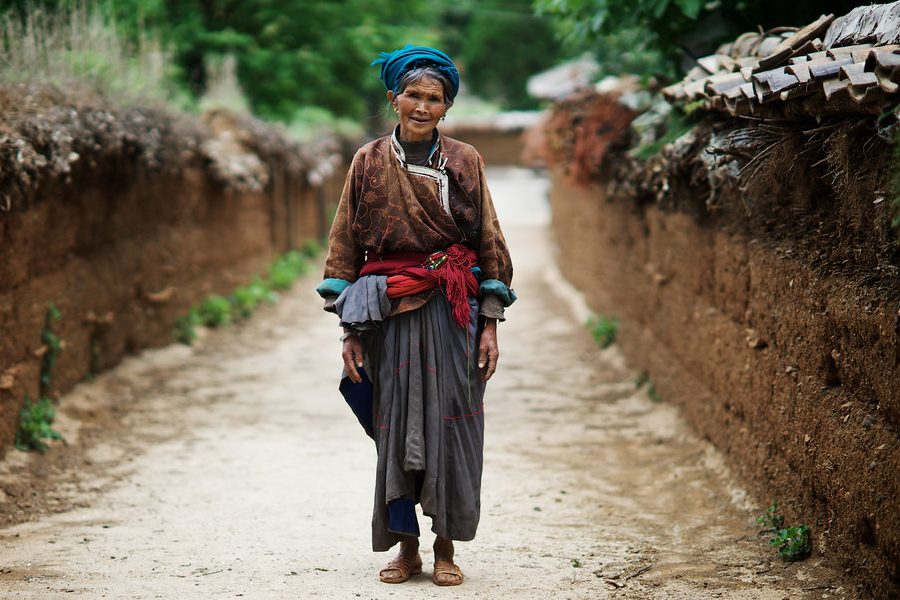
The Chinese government's policy of previously prohibiting the activities and development of Daba identity has led to a serious crisis. The old people, the surviving holders of Daba knowledge, were not always able to pass on their knowledge to the younger generation, so Moso oral history is in danger of disappearing.
But there is also positive news. Work is now underway to create a written language for the Mosuo language, which is a real attempt to preserve this unique culture. Ethnographic specialists, with the support of volunteers, are recording the oral histories and traditions of the Moso people before they sink into oblivion. Now there is essentially a race against time, but Moso's legacy is too valuable to be lost forever.
